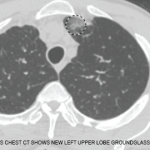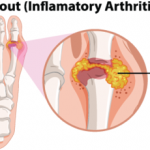A recent study is the first to examine pragmatic language skills in patients with systemic lupus erythematosus (SLE), finding that approximately half of SLE patients have pragmatic language dysfunction…


A recent study is the first to examine pragmatic language skills in patients with systemic lupus erythematosus (SLE), finding that approximately half of SLE patients have pragmatic language dysfunction…

ATLANTA—The authors of the new draft ACR treatment guideline for the management of gout presented the draft guideline on Nov. 13 at the 2019 ACR/ARP Annual Meeting. Based on evidence from more than 130 published studies, there are 42 recommendations, of which 16 were strong, including 27 for urate-lowering therapy (ULT) management, 13 of which…

Stephanie Kydd Dondero, DO, & Barry Waters, MD |
Apremilast was first marketed in March 2014 for the treatment of adults with psoriatic arthritis (PsA). An immunomodulating drug, which is a small molecule inhibitor of phosphodiesterase 4 (PDE4) specific for cyclic adenosine monophosphate (cAMP), apremilast is administered orally. By inhibiting PDE4, intracellular cAMP levels are increased. Although the exact mechanism of action is not…

Ambreesh Chawla, MD, Ashwini Komarla, MD, & Sujatha Vuyyuru, MD |
Eosinophilic granulomatosis with polyangiitis (EGPA), also known as Churg-Strauss syndrome or allergic granulomatosis and angiitis, is a rare small- and medium-vessel vasculitis. This disease was first described by American pathologists Jacob Churg and Lotte Strauss in 1951.1 Although the vasculitis is often not apparent in the initial phases of the disease, EGPA can affect any…

Larry Beresford |
Are outcomes better in a specialized lupus clinic compared with care provided in a general rheumatology setting? New research from Rush University, Chicago, studies this important care management question and finds the specialized clinic does indeed produce better outcomes.1 A big part of the difference may be due to the added experience specialty clinic clinicians…

Larry Beresford |
SAN FRANCISCO—The 13th International Congress on Systemic Lupus Erythematosus (SLE), held April 5–8, highlighted continuing advances in the fight against lupus, a chronic, inflammatory, autoimmune disease affecting multiple organ systems. The rheumatologist’s ability to control this incurable and life-threatening condition is limited both by its heterogeneous presentation and by the lack of successful treatment options,…

Philip Seo, MD, MHS |
I would like to tell you a story. Two, actually. I am just returning from the 19th International Vasculitis and ANCA Workshop, which is always a fascinating meeting. In its inception, it was a workshop, in the true sense of the word. Now, we discuss anti-neutrophil cytoplasmic antibody (ANCA) testing as casually as we discuss…

A study comparing seven biologic DMARDs in RA patients aged 65 years and older found abatacept had the highest retention rate and the lowest discontinuation rate…

SNOWMASS VILLAGE, COLO.—The 2019 ACR Winter Rheumatology Symposium featured a session on gout. Despite a good understanding of its pathogenesis and the many effective therapies to treat it, gout remains a major public health problem in the U.S. Ann K. Rosenthal, MD, Will and Cava Ross professor of medicine and chief of the Division of…
Over the past decade, physicians, patients and policy makers have expressed increasing concern about the high frequency of opioids being prescribed and the association between opioid use and poor outcomes. Rates of opioid prescriptions in the general population rose considerably from the 1990s through 2010, with a plateau in the early 2010s. In 2015, 38%…